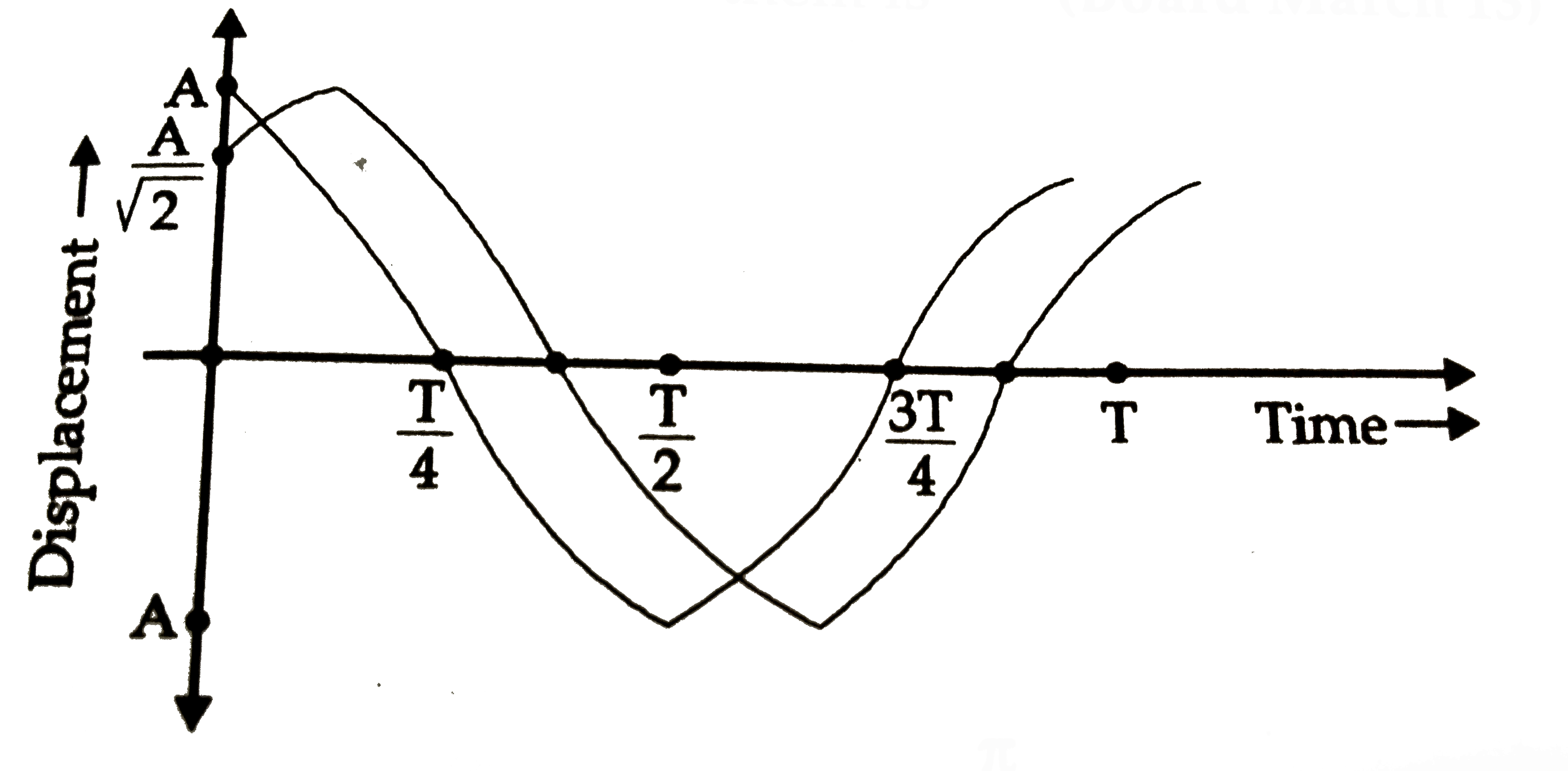Two particles A and B execute simple harmonic motions of period T and . They start from mean position. The phase difference between them when the particle A complete an oscillation will be
The correct Answer is:C
Phase difference time difference
.
Topper's Solved these Questions
- SIMPLE HARMONIC MOTIONBook:ERRORLESSChapter:SIMPLE HARMONIC MOTIONExercise:NCERT BASED QUESTIONS (Velocity of Simple Harmonic Motion)
Explore 11 Videos
- SIMPLE HARMONIC MOTIONBook:ERRORLESSChapter:SIMPLE HARMONIC MOTIONExercise:NCERT BASED QUESTIONS (Acceleration of Simple Harmonic Motion)
Explore 11 Videos
- ROTATIONAL MOTIONBook:ERRORLESSChapter:ROTATIONAL MOTIONExercise:Assertion & Reason
Explore 25 Videos
- SURFACE TENSIONBook:ERRORLESSChapter:SURFACE TENSIONExercise:ASSERTION & REASON
Explore 11 Videos
Similar Questions
Knowledge Check
Two particles A and B execute simple harmonic motions of period T and 5T/4. They start from mean position. The phase difference between them when the particle A complete an oscillation will be
Aπ/2BzeroC2π/5Dπ/4Two pendulums have time period T and 5T/4. They starts SHM at the same time from the mean position. What will be the phase difference between them after the bigger pendulum completed one oscillation ?
A45∘B90∘C60∘D30∘The phase difference between displacement and acceleration of a particle performing S.H.M. is
A2π radBπ2 radCπ radDπ4 rad
Two simple pendulums have time period T and 5T/4. They start vibrating at the same instant from the mean position in the same phase. The phase difference (in rad) between them when the smaller pendulum completes one oscillation will be
View SolutionThe phase of a particle executing simple harmonic motion is π2 when it has
View SolutionTwo simple pendulums have time periods T and 5T/4. They start vibrating at the same instant from the mean position in the same phase. The phase difference between them when the pendulum with higher time period complets one oscillation is
View SolutionA particle executing a simple harmonic motion has a period of 6 s. The time taken by the particle to move from the mean position to half the amplitude, starting from the mean position is
View SolutionA particle undergoes simple harmonic motion having time period T. The time taken in 3/8th oscillation is
View Solution
